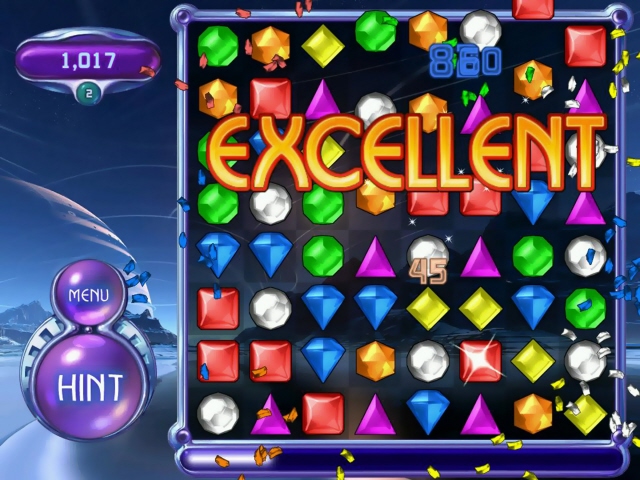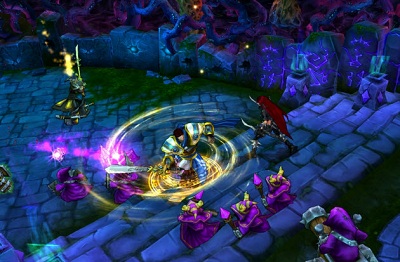 The social and mobile games gold rush inspired lots of investments in 2011, as venture capitalists tried to find the next Zynga. But the year was also a big one for acquisitions, particularly as big companies such as Electronic Arts tried to outmaneuver the social game giant via acquisitions.
The social and mobile games gold rush inspired lots of investments in 2011, as venture capitalists tried to find the next Zynga. But the year was also a big one for acquisitions, particularly as big companies such as Electronic Arts tried to outmaneuver the social game giant via acquisitions.
In 2011, 77 game companies were acquired for at least $2.827 billion, according to research by VentureBeat and other sources. We didn’t count the numbers for last year, but IHS Screen Digest reported that game acquisitions and fundings are likely to be twice as large in dollar value in 2011 compared to 2010. This original report by GamesBeat complements our research that showed game companies raised a record $1.54 billion in 2011.
The money going into games has fundamentally shifted from the consoles to social, mobile and online gaming, as investors and game creators chase the consumers who are playing games on many different kinds of devices and are embracing new business models, such as free-to-play games, where users play for free and pay small amounts for virtual goods.
Acquisitions have heated up as the big companies scramble to gobble up more nimble startups. The war for talent has matured. Instead of fighting over employees to hire, rivals are in a battle to see who can be the first to acquire whole game studios. During 2011, Zynga bought a game studio every month, scrutinizing hundreds of companies before making a single offer. In doing so, it was capturing talent before rivals such as Electronic Arts or DeNA could buy them.
And there were more game studios to buy than ever because developers were able to create startups more easily, thanks to the ecosystem that grew up around apps on Facebook and the smartphone and tablet platforms.
Tim Merel, managing director at Digi-Capital, summed up the changing landscape with a few observations: the rivalry between traditional console game makers like EA and new social game makers like Zynga was driving deals; China was moving to unseat America in games; and everyone was scrambling to get a piece of the emerging mobile games market. Game companies had to invest for growth or exit the market.
A number of the deals involved mobile game studios such as Rovio buying animation houses so that they could improve the animation features within their games as well as produce films for promoting the games.
Here’s a look at the biggest deals of the year, in terms of the dollar value of the transactions. Where the values of the deals were not disclosed, we simply listed them in reverse chronological order. We created this list based on our own original reporting and have linked to the relevant stories. For the deals we didn’t cover, we have linked to other publications. Beyond our own sources, we also consulted lists from the Internet DealBook and Digi-Capital. If you see some deals we missed, please say so in the comments and we’ll update the list.
1. Electronic Arts bought PopCap Games for up to $1.3 billion. July 12. EA beat out Zynga in this mega-deal, which consists of $750 million in cash and stock and a bonus of $550 million if PopCap meets performance targets. At a potential $1.3 billion in overall value, the deal far eclipses last year’s biggest deal, where Disney acquired Playdom for as much as $763.2 million.
2.  Tencent bought Riot Games for nearly $400M. Feb. 4. The Chinese social networking giant bought the maker of the popular League of Legends free-to-play online battle arena game.
Tencent bought Riot Games for nearly $400M. Feb. 4. The Chinese social networking giant bought the maker of the popular League of Legends free-to-play online battle arena game.
3. Private equity investors bought majority stake in Bigpoint for $350M. April 27. Summit Partners and TA Associates bought out the stakes of prior investors to acquire control of Bigpoint, a publisher of free-to-play online games with hundreds of millions of users.
4. Visa approved this transaction: PlaySpan for $190M. Feb. 9. The deal helped Visa move into the lucrative virtual goods payment transaction market.
5. Changyou.com acquired online game publisher 17173.com for $162.5 million in cash. Nov. 29. The deal showed that Asian game companies were also on a buying spree.
6. Japan’s Gree bought OpenFeint mobile social gaming network for $104 million. April 21. The deal helped Gree move into the worldwide mobile social game platform market.
7. In three-way transaction, Marvelous Entertainment, AQ Interactive and Liveware merged in a $89.6 million deal. May 10. Console game companies consolidated in Japan.
8. China’s Perfect World bought Atari’s Cryptic Studios for $49.8 million. May 30. The deal showed that Chinese companies are moving into the U.S.
9. Caesars Entertainment Casino Group bought 51 percent of social game developer Playtika for an estimated $40 – $50 million. May 19.
10. Autodesk bought Scaleform to expand game middleware offerings in a $36 million deal. Feb. 16.
11. Electronic Arts bought KlickNation, maker of Superhero City and other hardcore social games, for an estimated $35 million. Dec. 2.
12. Glu Mobile bought Griptonite Games for $28 million in stock. Aug. 11.
13. Korea’s Joymax bought IO Entertainment for $17.7 million. March 24.
14. Celestial Asia (CASH) bought Oberon Media Asia Pacific for $10 million. June 8.
15. DeNA bought Chilean mobile game firm Atakama Labs for estimated $6 million. Oct. 4.
16. Glu Mobile bought Blammo for $4.6 million in stock. Aug. 11.
17. QuePasa acquired Brazilian social game maker XtFT for $4 million. Feb. 1.
18.  Double Fusion bought assets of in-game ad firm NeoEdge Networks. Dec. 14.
Double Fusion bought assets of in-game ad firm NeoEdge Networks. Dec. 14.
19. Red Robot Labs bought Supernomo for mobile game expansion. Dec. 9.
20. Japan’s Sega bought Three Rings for an undisclosed price. Nov. 17.
21. Ubisoft bought Finnish Xbox Live developer RedLynx for an undisclosed price. Nov. 2.
22. 6waves Lolapps bought social gaming firm Smartron5 in China for an undisclosed price. Oct. 28.
23. Microsoft bought Xbox Live game developer Twisted Pixel for an undisclosed price. Oct. 12.
24. MocoSpace bought Geocade for an undisclosed price. Oct. 3.
25. DeNA bought Vietnamese game maker Punch Entertainment for an undisclosed price. Sept. 15.
26. Virtuous, a video game maker in Shanghai, bought assets of Vietnamese animation house Sparx. Sept. 14.
27. Ngmoco bought Facebook sports game developer Lionside for an undisclosed price. Sept. 13.
28. Germany’s Bigppoint bought sports games specialist 49Games for an undisclosed price. Sept. 12.
29. BigDoor acquired small business gamification firm OneTrueFan for an undisclosed price. Sept. 7.
30. Zynga bought mobile game studio Astro Ape for an undisclosed price. Aug. 16.
31. Digital Chocolate bought game developer Sandlot Games for an undisclosed price. Aug. 16.
32. Nordic Games bought assets of JoWood and The Adventure Co. for an undisclosed price. Aug. 16.
33. Electronic Arts bought mobile game developer Bight Games for an undisclosed price. Aug. 15.
34. Intel’s Havok division bought Trinigy for an undisclosed price. Aug. 8.
35. AR Games bought a 25 percent stake in Syncopate for an undisclosed price. Aug. 8.
36. Wang Sicong bought pro-gaming team CCM for more than $6 million. Aug. 3.
37. Sony bought console video game maker Sucker Punch, creator of inFamous, for an undisclosed price. Aug. 2.
38. NCsoft bought smartphone game maker Hotdog Studio in Seoul. July 28.
39. Halfbrick bought stake in animation house The People’s Republic of Animation. July 20.
40. Live Gamer bought Brandport and GamerDNA for an undisclosed price. July 19.
41. 6waves merged with Lolapps for an undisclosed price. July 18.
42. Riptide merged with Projkt Nine to form mobile game firm. July 11.
43. Zynga bought Toronto mobile game firm Five Mobile for an undisclosed price. July 8.
